I confess, there was a time when my chicken adventures ended with dry, rubbery results. But over the years, I’ve learned the secrets to achieving tender, juicy, and flavorful chicken every single time. It's a journey of culinary exploration and I'm excited to share it with you. Whether you're a seasoned chef or just starting out, this comprehensive guide will arm you with the knowledge you need to cook chicken like a pro. We'll cover everything from choosing the right cut to mastering different cooking methods and ensuring your chicken is cooked to perfection. So, grab your apron, your favorite spices, and let's get cooking!
(Part 1) The Chicken Chronicles: Unveiling the Basics
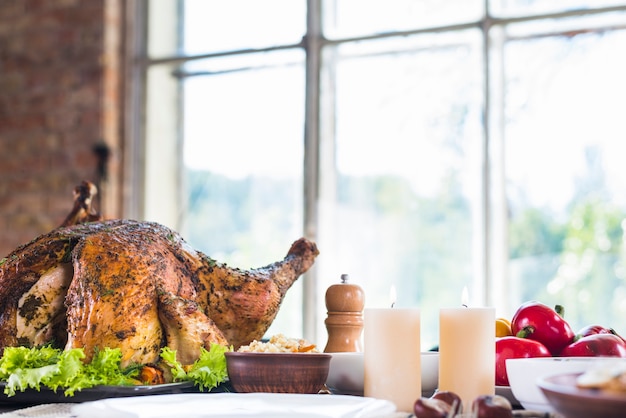
Before we dive into the specific cooking times, let's get our chicken knowledge in order. Understanding the different types of chicken and how they react to various cooking methods is key to delicious results. This knowledge will help you choose the perfect cut for your recipe and ultimately, achieve a masterpiece.
Chicken Cuts: A Culinary Lineup
The world of chicken offers a variety of cuts, each with its own unique qualities and suitability for different recipes. Let's break down the key players:
- whole chicken: The complete package, perfect for roasting, grilling, or poaching. It's a classic for family meals, and you get to enjoy the juicy dark meat and tender white meat in one go.
- chicken pieces: This versatile category includes breasts, thighs, drumsticks, wings, and legs. Each piece offers a different texture and flavor profile. They're ideal for grilling, frying, baking, or braising, making them perfect for a variety of dishes.
- chicken breasts: The lean and versatile superstar, often used for grilling, pan-frying, or baking. While lean, they can sometimes be a little dry, so using moist cooking methods and brining can help.
- chicken thighs: The flavorful and juicy crowd-pleaser. Thanks to their higher fat content, thighs are incredibly forgiving and perfect for grilling, roasting, or braising. They tend to be more flavorful and hold up better to longer cooking times.
- chicken drumsticks: A classic choice for grilling, roasting, or frying. They offer a satisfying combination of meat and bone, perfect for casual meals or backyard barbecues.
- chicken wings: Ideal for grilling, frying, or baking, wings are often stars in appetizer and snack spreads. The crispy skin and juicy meat make them a popular choice for game day gatherings and casual get-togethers.
Cooking Methods: A Culinary Toolkit
There are so many ways to cook chicken, and each method unlocks a unique flavor and texture. Choosing the right cooking method depends on the cut of chicken, your desired outcome, and your personal preferences. Let's explore the most popular methods:
- Roasting: The classic way to cook a whole chicken or large pieces, resulting in tender and juicy meat with crispy skin. The oven does the work, allowing for even cooking and a beautiful golden-brown finish.
- Grilling: Perfect for smaller pieces like breasts and thighs, grilling imparts a smoky flavor and adds a delicious char to the exterior. It's ideal for warm weather dining and backyard barbecues.
- Pan-frying: A quick and easy method for cooking chicken, resulting in a crispy exterior and a juicy interior. The sear achieved in the pan adds a wonderful flavor to the meat, and it's great for weeknight meals when you want a quick and delicious dinner.
- Baking: Similar to roasting, but often at a higher temperature, resulting in a faster cook time. Baking works well for smaller pieces of chicken and allows for flexibility in flavor combinations with different sauces and seasonings.
- Braising: A slow and gentle cooking method that results in incredibly tender meat. This technique is perfect for tougher cuts of chicken, like thighs and drumsticks, transforming them into melt-in-your-mouth delicacies.
- Poaching: A gentle cooking method that results in very tender meat. Poaching is perfect for creating delicate chicken dishes and adding a subtle elegance to your culinary creations.
(Part 2) Chicken Cooking Timetables: A Guide to Precision
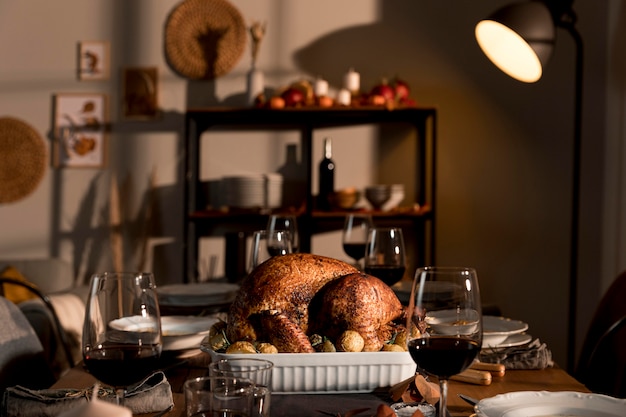
Now, let's get down to the nitty-gritty of cooking times. This is where we ensure our chicken is cooked perfectly, achieving that coveted balance of tenderness and juiciness. Let's break down the cooking times for various cuts and methods, along with helpful tips to guarantee delicious results.
Roasting: A Classic Approach
Roasting is a timeless method that produces tender, juicy chicken with crispy skin. It's perfect for a whole chicken or larger pieces. Here are the approximate roasting times:
Roasting Time:
| Cut | Temperature (°C) | Time |
|---|---|---|
| Whole Chicken (3-4 lbs) | 180°C | 1 hour 30 mins - 2 hours |
| Chicken Pieces (breasts, thighs, drumsticks) | 180°C | 40-60 minutes |
Tips for perfect roast Chicken:
- Pat it dry: Pat the chicken dry with paper towels before roasting to help achieve crispy skin.
- Season generously: Salt, pepper, and herbs are your best friends. Don't be shy with the seasoning, as it will infuse the meat with flavor.
- Use a rack: Place the chicken on a rack in a roasting pan to allow for even cooking and air circulation. This prevents the chicken from sitting in its own juices and helps to achieve crispy skin.
- Check the internal temperature: Use a meat thermometer to ensure the chicken is cooked to a safe internal temperature of 74°C (165°F).
- Rest for the best: Let the chicken rest for 10-15 minutes before carving. This allows the juices to redistribute, resulting in tender and juicy meat.
Grilling: A Smoky Delight
Grilling is perfect for smaller pieces of chicken, like breasts and thighs, imparting a smoky flavor and a crispy exterior. It's a delicious method for summer meals and casual gatherings.
Grilling Time:
| Cut | Temperature (°C) | Time |
|---|---|---|
| Chicken Breast (1-inch thick) | Medium-high heat (around 200°C) | 4-6 minutes per side |
| Chicken Thigh (1-inch thick) | Medium-high heat (around 200°C) | 6-8 minutes per side |
Tips for Grill Master Chicken:
- Clean and oiled: Ensure your grill grates are clean and well-oiled to prevent sticking.
- Season with zest: Season the chicken generously with salt, pepper, and any other desired spices or marinades.
- Medium-high heat: Grill over medium-high heat, turning the chicken once or twice to ensure even cooking.
- Temperature check: Use a meat thermometer to check the internal temperature of the chicken. It should reach 74°C (165°F) for safe consumption.
- Rest and enjoy: Let the chicken rest for 5-10 minutes before serving to allow the juices to redistribute.
Pan-frying: A Quick and Flavorful Method
Pan-frying is a quick and easy method for achieving a crispy exterior and a juicy interior. It's perfect for weeknight meals and when you need a delicious dinner on the table in a flash.
Pan-frying Time:
| Cut | Heat | Time |
|---|---|---|
| Chicken Breast (1-inch thick) | Medium-high heat | 3-4 minutes per side |
| Chicken Thigh (1-inch thick) | Medium-high heat | 4-5 minutes per side |
Tips for Pan-fried Perfection:
- Heavy-bottomed pan: Use a heavy-bottomed pan to distribute heat evenly.
- Hot oil: Heat the oil over medium-high heat before adding the chicken. The oil should be hot enough to sizzle when you add the chicken.
- Season to taste: Season the chicken generously with salt, pepper, and any other desired spices.
- Don't overcrowd: Cook the chicken in batches if necessary to ensure even browning and cooking.
- Cook until golden brown: Cook the chicken until it's golden brown and cooked through. Use a meat thermometer to check the internal temperature. The internal temperature should reach 74°C (165°F) for safe consumption.
- Rest before serving: Let the chicken rest for 5-10 minutes before serving to allow the juices to redistribute.
Baking: A Versatile Approach
baking chicken is similar to roasting but often uses a higher temperature, resulting in a faster cook time. Baking is a great option for smaller pieces of chicken and allows for creative flavor combinations.
Baking Time:
| Cut | Temperature (°C) | Time |
|---|---|---|
| Chicken Breast (1-inch thick) | 200°C | 15-20 minutes |
| Chicken Thigh (1-inch thick) | 200°C | 20-25 minutes |
Tips for Baking Success:
- Preheat the oven: Preheat the oven to the desired temperature before placing the chicken in the oven.
- Parchment paper: Place the chicken on a baking sheet lined with parchment paper to prevent sticking.
- Season it up: Season the chicken generously with salt, pepper, and any other desired spices.
- Cook until done: Bake the chicken until cooked through. Use a meat thermometer to check the internal temperature. The internal temperature should reach 74°C (165°F) for safe consumption.
- Rest and enjoy: Let the chicken rest for 5-10 minutes before serving to allow the juices to redistribute.
Braising: A Tenderizing Technique
Braising is a slow and gentle cooking method that transforms tougher cuts of chicken, like thighs and drumsticks, into incredibly tender meat. It's a technique that requires patience but rewards you with melt-in-your-mouth results.
Braising Time:
| Cut | Time |
|---|---|
| Chicken Thighs | 1-1.5 hours |
| Chicken Drumsticks | 1.5-2 hours |
Tips for Braising Excellence:
- Sear for flavor: Sear the chicken in a pan over medium-high heat until browned on all sides. This step creates a flavorful crust.
- Transfer and braise: Transfer the chicken to a dutch oven or other braising pot.
- Add aromatics: Add aromatics like onions, garlic, and carrots to the pot. These ingredients will infuse the cooking liquid with delicious flavor.
- Liquid magic: Pour in enough liquid to cover the chicken, such as broth, wine, or water.
- Simmer and cover: Bring the liquid to a simmer, then cover the pot and braise the chicken until tender.
- Rest before serving: Remove the chicken from the pot and let it rest for 5-10 minutes before serving.
Poaching: A Gentle Approach
Poaching is a gentle cooking method that results in very tender meat. It's ideal for creating delicate chicken dishes and adding a subtle elegance to your culinary creations.
Poaching Time:
| Cut | Time |
|---|---|
| Chicken Breast | 15-20 minutes |
| Chicken Thighs | 20-25 minutes |
Tips for Poaching Perfection:
- Simmering water: Bring a large pot of water to a simmer.
- Aromatic infusion: Add aromatics like bay leaves, peppercorns, and herbs to the water.
- Gentle addition: Gently add the chicken to the simmering water.
- Cook until done: Poach the chicken until cooked through. The internal temperature should reach 74°C (165°F) for safe consumption.
- Rest and enjoy: Remove the chicken from the water and let it rest for 5-10 minutes before serving.
(Part 3) The chicken safety Checklist: Ensuring a Safe Culinary Experience
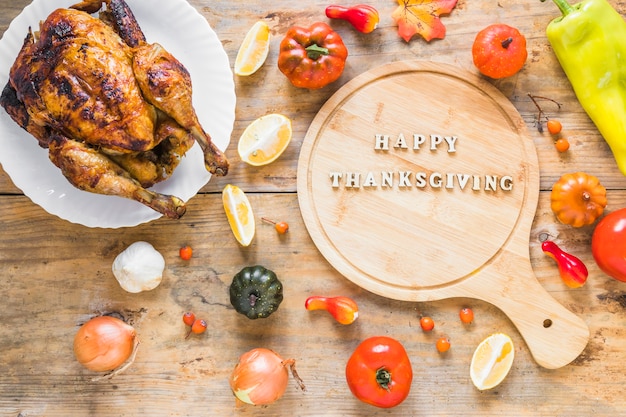
While we've covered cooking times and techniques, it's crucial to prioritize safety. Ensuring your chicken is cooked thoroughly is essential to eliminate any potential foodborne illness. This means knowing the right internal temperature and using a meat thermometer.
The Internal Temperature: A Key Indicator
The only foolproof way to ensure your chicken is cooked safely is to use a meat thermometer. It will tell you the internal temperature of the chicken, allowing you to determine if it's cooked through. The USDA recommends an internal temperature of 74°C (165°F) for safe consumption.
Why is internal temperature so important?
Chicken can harbor bacteria like Salmonella, which can cause foodborne illness. Cooking the chicken to the proper internal temperature kills these harmful bacteria, ensuring your food is safe to eat.
The Meat Thermometer: Your Safety Companion
Using a meat thermometer is straightforward:
- Insert the probe: Insert the probe into the thickest part of the chicken, avoiding bone.
- Wait for stabilization: Wait for the temperature to stabilize on the display.
- Check the temperature: If the internal temperature reaches 74°C (165°F), your chicken is cooked through and safe to eat.
Pro Tip: Don't rely on visual cues like color to judge if your chicken is cooked through. Sometimes the chicken might appear cooked on the outside but still be undercooked inside. Always use a meat thermometer to be sure.
(Part 4) Chicken Cooking Faux Pas: Avoiding Common Mistakes
Even the most experienced cooks make mistakes. Here are some common chicken cooking mistakes to avoid, ensuring you always end up with delicious and safe poultry.
1. Overcrowding the Pan: A Recipe for Soggy Chicken
Overcrowding the pan is a common mistake that can lead to uneven cooking and steam buildup, resulting in soggy chicken. When pan-frying or baking, ensure there's enough space between the chicken pieces for proper heat circulation and browning.
2. Skipping the Rest: Don't Rush the Process
Resist the temptation to carve into the chicken immediately after cooking. Let it rest for 5-10 minutes to allow the juices to redistribute, resulting in tender and juicy meat.
3. Too Much Heat: A Recipe for Burned Chicken
When grilling or pan-frying, resist the urge to crank up the heat. Cooking chicken over too high heat can lead to burning on the outside and undercooked meat inside. Use medium-high heat for most cooking methods.
4. Not Seasoning Properly: The Key to Flavor
Salt and pepper are essential for flavoring chicken. Don't be shy about seasoning generously. You can also experiment with different herbs and spices based on your recipe.
5. Ignoring the Thermometer: A Culinary Must-Have
The most important rule of all: always check the internal temperature of your chicken using a meat thermometer. Don't rely on visual cues alone to judge if it's cooked through.
(Part 5) Chicken cooking tips: Secrets for Success
Here are some additional tips to help you achieve chicken cooking perfection every time:
- Pat the chicken dry: Patting the chicken dry before cooking helps ensure crispy skin.
- Brine the chicken: Brining is a simple method of soaking chicken in a salt solution to improve moisture retention. It's a great technique for juicy chicken breasts.
- Use a meat thermometer: A meat thermometer is a must-have tool for ensuring your chicken is cooked to the proper internal temperature.
- Don't overcook the chicken: Overcooked chicken becomes dry and tough. Cook it just until the internal temperature reaches 74°C (165°F).
- Let the chicken rest: Resting the chicken after cooking allows the juices to redistribute, resulting in tender and juicy meat.
(Part 6) Chicken flavor profiles: Unveiling the Power of Marinades and Rubs
Chicken is a culinary blank canvas, waiting to be transformed with flavor. You can enhance its natural taste with marinades and rubs. Let's explore some exciting possibilities.
Marinades: A Flavor Infusion
Marinades are liquid mixtures that infuse chicken with flavor and moisture. They often contain acidic ingredients like vinegar, lemon juice, or yogurt, which help to tenderize the chicken.
- Mediterranean Marinade: Combine olive oil, lemon juice, garlic, oregano, and salt and pepper. This classic blend is bursting with fresh, Mediterranean flavors.
- Honey Garlic Marinade: Mix soy sauce, honey, garlic, ginger, and sesame oil. This marinade offers a sweet and savory profile with a hint of ginger.
- Spicy Chipotle Marinade: Blend adobo sauce from canned chipotles in adobo, lime juice, garlic, cumin, and chili powder. For those who enjoy a fiery kick, this marinade delivers a smoky and spicy punch.
Rubs: A Crispy and Flavorful Touch
Rubs are dry spice mixtures that add flavor and create a crispy crust on chicken. They can be simple or complex, depending on your taste.
- Simple Herb Rub: Combine dried rosemary, thyme, oregano, salt, and pepper. This classic blend adds a warm and aromatic touch to your chicken.
- Cajun Rub: Mix paprika, cayenne pepper, garlic powder, onion powder, thyme, oregano, and salt. This rub delivers a bold and spicy flavor profile reminiscent of Louisiana cuisine.
- BBQ Rub: Combine brown sugar, paprika, chili powder, cumin, garlic powder, onion powder, and salt. This rub is perfect for those who love the smoky and sweet flavors of barbecue.
(Part 7) chicken recipes: A Culinary Inspiration
To spark your culinary creativity, here are a few of my favorite chicken recipes that showcase the versatility of this beloved ingredient.
1. Roasted Lemon Herb Chicken: A Classic Delight
This recipe is a classic for a reason: simple, flavorful, and crowd-pleasing.
- Ingredients:
- 1 whole chicken (3-4 lbs)
- 2 lemons, cut into wedges
- 2 tablespoons olive oil
- 1 tablespoon dried rosemary
- 1 tablespoon dried thyme
- 1 teaspoon salt
- 1/2 teaspoon black pepper
- Instructions:
- Preheat oven to 180°C.
- Pat the chicken dry with paper towels.
- In a small bowl, combine the olive oil, rosemary, thyme, salt, and pepper.
- Rub the mixture all over the chicken.
- Place the chicken in a roasting pan and stuff the lemon wedges inside the cavity.
- Roast for 1 hour 30 minutes to 2 hours, or until the internal temperature reaches 74°C (165°F).
- Let the chicken rest for 10-15 minutes before carving.
2. Grilled Honey Garlic Chicken: A Sweet and Savory Delight
This recipe delivers a sweet and savory flavor with a hint of ginger. It's a great choice for a summer barbecue.
- Ingredients:
- 4 boneless, skinless chicken breasts
- 1/4 cup soy sauce
- 1/4 cup honey
- 2 cloves garlic, minced
- 1 tablespoon ginger, minced
- 1 tablespoon sesame oil
- Instructions:
- In a small bowl, combine the soy sauce, honey, garlic, ginger, and sesame oil.
- Marinate the chicken breasts in the mixture for at least 30 minutes, or up to 2 hours.
- Preheat your grill to medium-high heat.
- Grill the chicken breasts for 4-6 minutes per side, or until cooked through.
- Let the chicken rest for 5-10 minutes before slicing and serving.
3. pan-fried chicken with Lemon and Capers: A Quick and Flavorful Weeknight Meal
This recipe is a quick and easy weeknight meal with a burst of flavor from the lemon and capers.
- Ingredients:
- 4 boneless, skinless chicken breasts
- 1 tablespoon olive oil
- 1/2 lemon, thinly sliced
- 2 tablespoons capers
- 1/4 cup dry white wine (optional)
- 1 tablespoon butter
- 1/4 cup chopped fresh parsley
- Salt and pepper to taste
- Instructions:
- Heat the olive oil in a large skillet over medium-high heat.
- Season the chicken breasts with salt and pepper.
- Add the chicken breasts to the skillet and cook for 3-4 minutes per side, or until golden brown and cooked through.
- Remove the chicken from the skillet and set aside.
- Add the lemon slices, capers, and white wine (if using) to the skillet and cook for 1-2 minutes, or until the wine has reduced slightly.
- Stir in the butter until melted.
- Return the chicken breasts to the skillet and cook for 1-2 minutes, or until heated through.
- Sprinkle with parsley before serving.
(Part 8) Chicken cooking faqs: A Guide to Common Questions
To ensure your chicken cooking journey is smooth sailing, here are answers to some frequently asked questions.
1. What's the best way to tell if chicken is cooked through?
The most accurate way to determine if chicken is cooked through is by using a meat thermometer. The internal temperature should reach 74°C (165°F) for safe consumption. Don't rely on visual cues like color alone to judge doneness.
2. Can I cook chicken in a slow cooker?
Yes, you can cook chicken in a slow cooker. However, it's important to make sure the internal temperature reaches 74°C (165°F) for safety. Cook chicken on low for 6-8 hours or on high for 3-4 hours.
3. Can I freeze cooked chicken?
Yes, you can freeze cooked chicken. It's best to freeze cooked chicken in airtight containers or freezer bags. Properly frozen cooked chicken can last for 2-3 months in the freezer.
4. What are some signs that chicken is spoiled?
Spoiled chicken will have a sour or putrid smell. The texture might become slimy or sticky, and the color may turn grayish or greenish. If you notice any of these signs, discard the chicken immediately.
5. How can I prevent chicken from drying out?
There are several ways to prevent chicken from drying out:
- Brine the chicken: Soaking the chicken in a salt solution before cooking helps to retain moisture.
- Don't overcook the chicken: Cook chicken just until the internal temperature reaches 74°C (165°F).
- Use a moist cooking method: Methods like braising and poaching help keep the chicken moist.
I hope this comprehensive guide has equipped you with the confidence and knowledge to cook chicken like a pro. Remember, the most important thing is to have fun in the kitchen and enjoy the process. So grab your favorite chicken recipe, gather your ingredients, and let's get cooking!
Everyone is watching

How to Cook Frozen Lobster Tails Perfectly: A Step-by-Step Guide
RecipesLobster. Just the word conjures up images of lavish meals, special occasions, and a taste of luxury. But let's...

Pigs in a Blanket Cooking Time: How Long to Bake for Perfect Results
RecipesAh, pigs in a blanket. Just the name conjures up images of those delightful little parcels of crispy pastry en...

Pork Fillet Cooking Time: How Long to Cook It Perfectly
RecipesPork fillet, or tenderloin as it's sometimes called, is a real favourite in our house. It's so versatile, and...
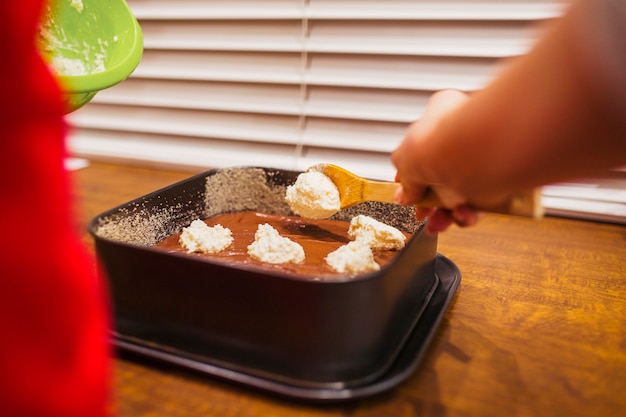
The Ultimate Guide to Cooking Delicious Frankfurters
RecipesLet's face it, we all love a good frankfurter. It's a classic, simple, and always satisfying. But let's be rea...
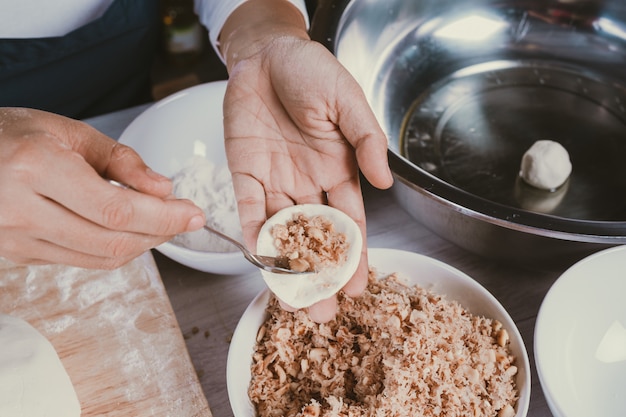
The Ultimate Guide to Tender, Juicy Pulled Pork
RecipesRight, let's talk pulled pork. It's one of those dishes that just screams "comfort food," doesn't it? I mean...
